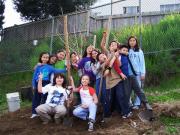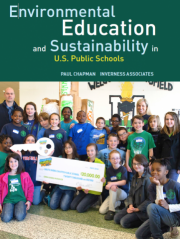Twenty-First Century Skills
Skills for 21st Century Learning
Not long ago, at the end of the 20th century, our nation’s educators were gripped in culture wars, debating the relative merits of curricular programs based on the Western canon versus those with a multicultural and global perspective. And at the same time, the character education movement focused on how schools can and should shape our children’s values. With the new century unfolding, the National Association of Independent Schools has embarked on the task of describing what the “schools of the future” will look like in our rapidly changing, interdependent world. The focus can be summed up in a single word: skills.
Americans have a fascination with making lists, and much constructive thinking has gone into answering the question, what skills should our students develop?
Yet, to my mind, all these efforts need to be founded on a more coherent and transparent theory of how students learn. The lists present a bit of a patchwork, with items seemingly plucked from a pile. Above all, any list of 21st century skills needs to be memorable if it is to reshape educational practice.
The “theory of multiple intelligences” developed by Harvard professor Howard Gardner in Frames of Mind (1983) and Five Minds for the Future (1999) offers a clear description of the various abilities each child possesses. (4) And his work gives us a solid foundation for developing our map of essential skills for students to acquire. He posits the following eight intelligences: Verbal-linguistic (word smart), Mathematical-quantitative (number smart), Visual-spatial (picture smart), Musical (sound smart), Intrapersonal (self smart), Interpersonal (people smart), Environmental (nature smart), and Bodily-kinesthetic (physically smart). Gardner argues that each of these abilities is discrete, can be measured and should be nurtured as part of any good, liberal education.
What is a skill but the behavioral manifestation of an underlying ability. In my view, there are seven 21st century key skills all students need to develop:
1. Critical thinking—the ability to analyze and synthesize and to understand the interdependence of all human and natural systems.
2. Problem solving—the ability to ask the right questions about real world issues, to develop a process to answer them, and to evaluate the success of solutions.
3. Creativity—the ability to think in unconventional ways, to take initiative, and to take appropriate risks.
4. Communication—the ability to express oneself clearly, verbally, in writing, and with digital technology.
5. Character—the ability to understand oneself and to behave ethically and morally, guided by the values of respect, responsibility, integrity and good citizenship.
6. Leadership—the ability to enlist and inspire others to achieve a common goal, which requires social-emotional intelligence and teamwork.
7. Commitment—the ability to appreciate cultural, global and environmental diversity and interdependence and to develop a sense of purpose in one’s life for the greater good.
Expressed another way, our students’ 21st century skills are simply those of the head (critical thinking, problem solving, creativity), the voice (communication), and the heart (character, leadership, and commitment).
As NAIS helps develop schools of the future, it is vital that each member school develop an inventory of the skills students need for success in the 21st century. Not only will the process strengthen pedagogy in our schools, it will enhance our other efforts to support global and environmental sustainability. While I believe the list above offers a clear and compelling set of skills, there is obviously no right answer or one best system. The important point is that by reflecting on what skills are worth developing, and by refining our curricular programs and pedagogy accordingly, we can prepare our students for a rapidly-changing, increasingly interdependent world. They deserve nothing less.
Paul Chapman, December 2010
Notes
1. Tony Wagner, The Global Achievement Gap, suggests these skills: 1. Critical thinking and problem solving, 2. Collaboration Across Networks and Leading by Influence, 3. Agility and adaptability, 4. Initiative and entrepreneurialism, 5. Effective oral and written communication, 6. Access and analyzing information, and 7. Curiosity and imagination.
2. Pat Bassett, “Demonstrations of Learning for 21st Century Schools,” Independent School Magazine, offers this list of skills: 1. Character (self-discipline, empathy, integrity, resilience, and courage), 2. Creativity and entrepreneurial spirit, 3. Real-world problem-solving (filtering, analysis and synthesis), 4. Public Speaking/communications, 5. Teaming, and 6. Leadership.
3. Robert Witt and Jim McManus, NAIS Commission on Accreditation, Schools of the Future Committee, “Essential Capacities for the 21st Century,” February 2009 includes these skills: 1. Analytical and Creative Thinking, 2. Complex Communication--Oral and Written, 3. Leadership and Teamwork, 4. Digital and Quantitative Literacy, 5. Global Perspective, 6. Adaptability, Initiative, and Risk-Taking, 7. Integrity and Ethical Decision-Making.
4. Howard Gardner, Frames of Mind (1983) and Five Minds for the Future (1999)







